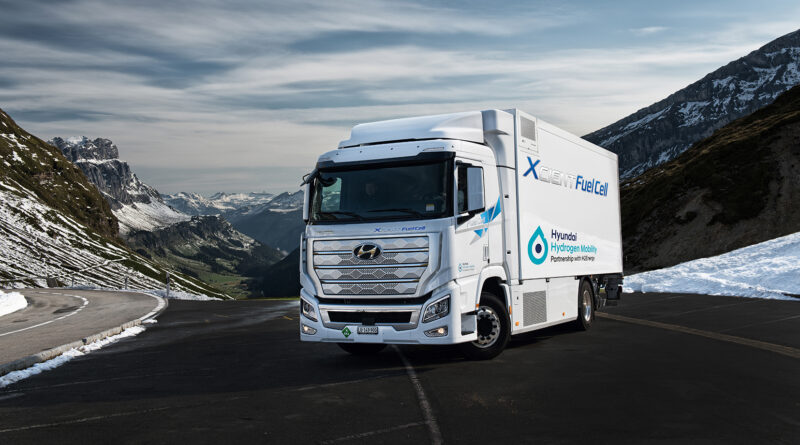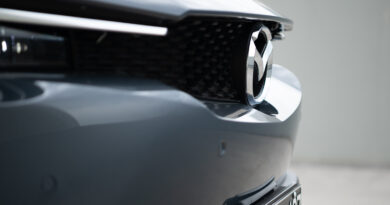Hyundai hydrogen fuel cell trucks delivered to first European customers
This week, somewhere in the clean mountain air of Switzerland, heavy-duty trucks will haul their cargos while emitting only water vapour.
Hyundai Motor has delivered its first seven Xcient Fuel Cell (hydrogen fuelled) trucks to Swiss customers – the first ever commercially available mass-produced trucks of their type – and are the first of 50 hitting roads there in 2020.
While the passenger car and light commercial segments embrace battery electric technology, hydrogen fuel cell technology is widely acknowledged as the preferred clean mobility solution for large commercial vehicles.
A battery electric truck, for example, has lengthy charging times and sacrifices payload due to the tremendous weight of batteries needed to offer usable range.
Conversely, Hyundai says the Xcient Fuel Cell truck has a driving range of around 400 kilometres with a full trailer in tow, and its 350-bar 32kg hydrogen tank “refuels in about the same time as diesel trucks.”
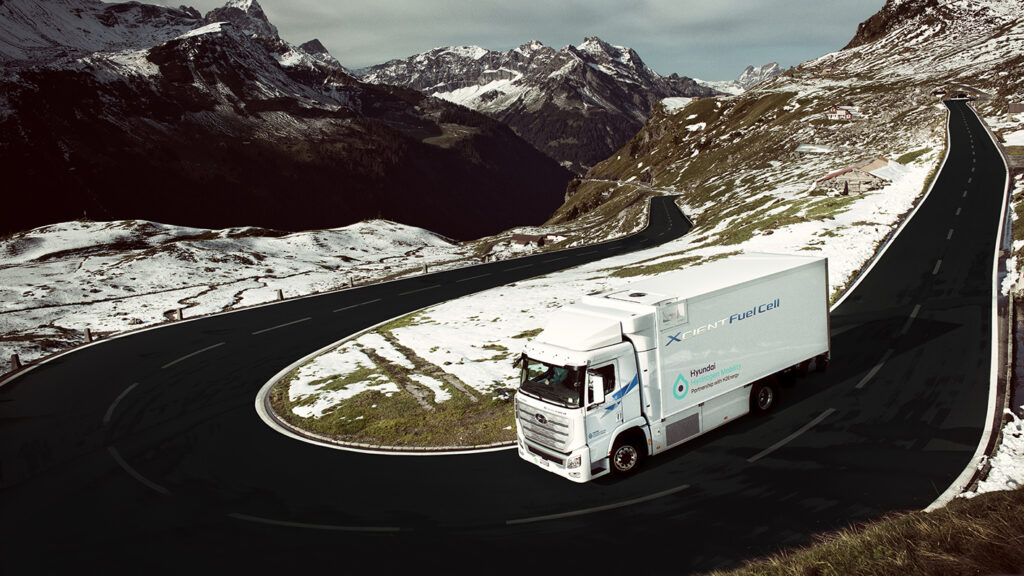
The 4×2 cab chassis weighs 9795kg, has a Gross Vehicle Mass (GVM) of 19,000kg as a rigid truck and Gross Combination Mass (GCM) of 36,000kg.
The hydrogen feeds a fuel cell which creates electricity when the hydrogen reacts with oxygen in the air to create water vapour. The electricity is used to power the Xcient Fuel Cell truck’s Siemens 350kW/3400Nm motor, with a 73kWh battery as back-up.
It uses two 95kW fuel cell stacks, the same as found in Hyundai’s Nexo SUV – the first hydrogen-powered vehicle to meet Australian Design Rule (ADR) certification and set to launch in Australia later this year.
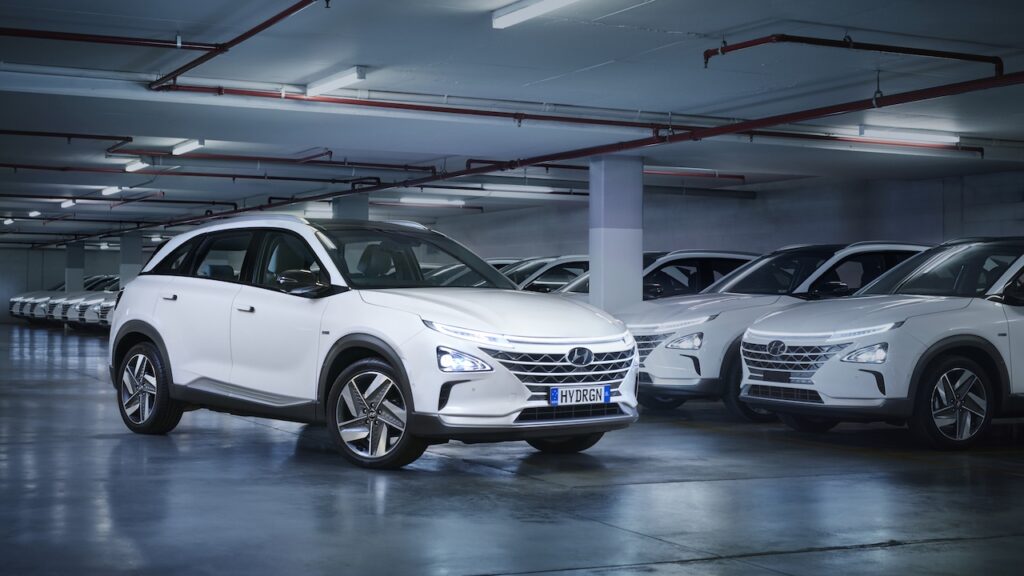
Hyundai said the Xcient’s fuelling time to full charging takes “approximately 8-20 minutes” and it can carry a load comparable to a diesel truck. Maximum speed is listed as only 85km/h, but 80-90km/h is the speed limit for heavy trucks through much of Europe.
Hyundai’s global hydrogen plans “opens endless possibilities for clean mobility,” said In Cheol Lee, Executive Vice President at Hyundai Motor. “The delivery of Xcient Fuel Cell starts a new chapter not only for Hyundai’s hydrogen push, but also the global community’s use of hydrogen as a clean energy source.
“With successful delivery of the first Xcient Fuel Cell trucks, we proudly announce our plan to expand beyond Europe to North America and China where we are already making great progress.”
To support this expansion, Hyundai said production capacity of the Xcient Fuel Cell will reach 2000 units per year by 2021. Investment wise, it announced a further USD$1.3 billion on top of the previously-announced USD$6.4 billion stake in “establishing a hydrogen ecosystem to support creation of a hydrogen society.”
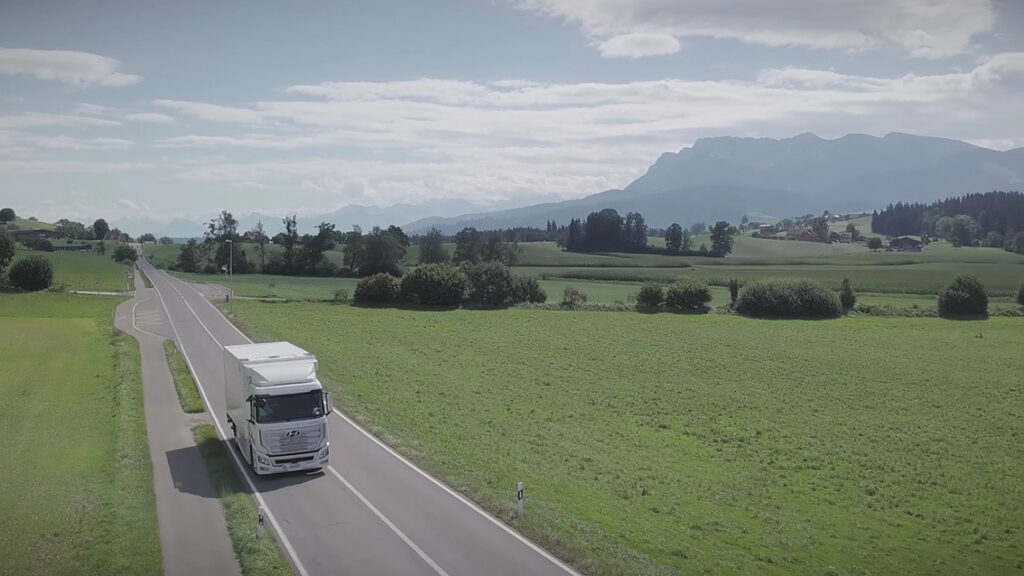
Make no mistake, Hyundai has lofty targets for its contribution to the “hydrogen society”. It revealed a fuel cell powered heavy-duty truck concept called HDC-6 Neptune at last year’s North American Commercial Vehicle Show, and said this market would also get a 6×4 tractor model. By 2030, Hyundai expects “more than 12,000 fuel cell trucks to hit the U.S roads.”
It also aims to get one million hydrogen vehicles (passenger and commercial) on Chinese roads by 2030, and three fuel cell electric trucks are scheduled for launch there: a medium-duty truck in 2022 and two heavy-duty trucks after that.
The ball’s started rolling in Europe with the Swiss Xcient deliveries, and again revealing its ambition, Hyundai said it expects to supply 1600 commercial fuel cell trucks to Europe by 2025.
Infrastructure, of course, will be key.
“To support the growing hydrogen ecosystem, Hyundai has a business case for more than 100 hydrogen fuelling stations in Switzerland, which is enough not only for commercial vehicles, but also passenger fuel cell electric vehicles.”
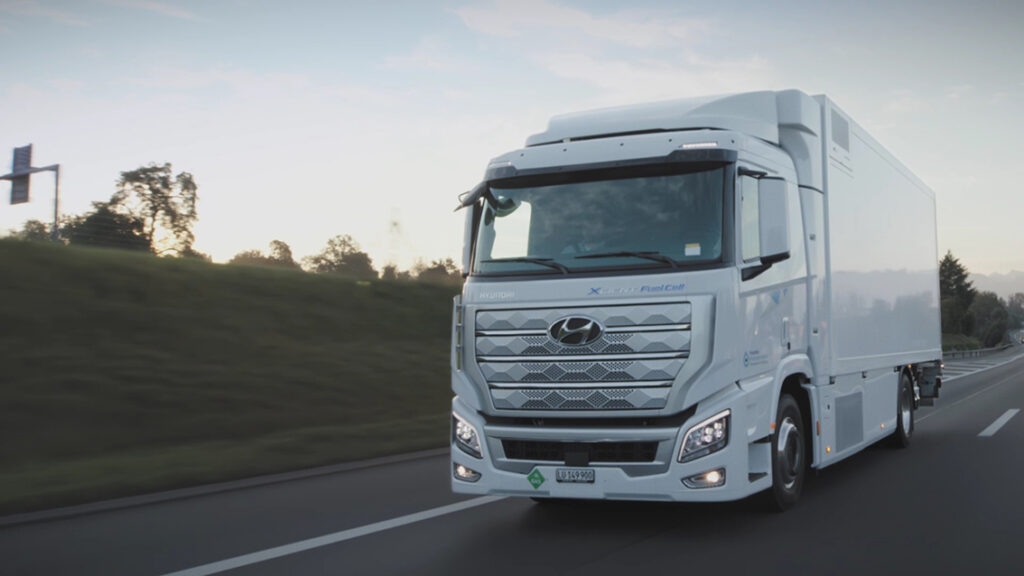
And what about Australia? These current Xcient Fuel Cell trucks are left-hand drive only, so any that came here would be restricted to the likes of garbage trucks, airport operations or military operations. If they did, this would help build our hydrogen infrastructure network.
At present, Australia’s only private hydrogen refuelling station is at Hyundai Motor Company’s Sydney HQ. With the ACT government taking delivery of 20 Nexo SUVs, Canberra’s opening a 700-bar hydrogen refuelling station to service this fleet. By the end of the year, hydrogen refuellers in Brisbane and Melbourne are expected to be completed.
Speaking to the media, Hyundai said its next-generation Xcient Fuel Cell heavy-duty trucks would be available in right-hand-drive for markets such as the UK and Australia around 2024. “The new model will feature an e-axle and two 200kW fuel cell systems that are under development,” we were told.
This new model line-up will include 4×2 and 6×2 cargo trucks and 4×2 tractors, with a 44-ton GCM tractor offering a range of up to 1000 kilometres on a single charge.
A heavy-duty truck with such specifications and abilities would certainly be a tipping point for a switch from diesel to fuel cell electric, but cost would be a factor.
To this end, Hyundai said it expected fuel cell heavy-duty trucks to have a cost parity with diesel versions by 2030, or even sooner should governments in some countries offer incentives.

